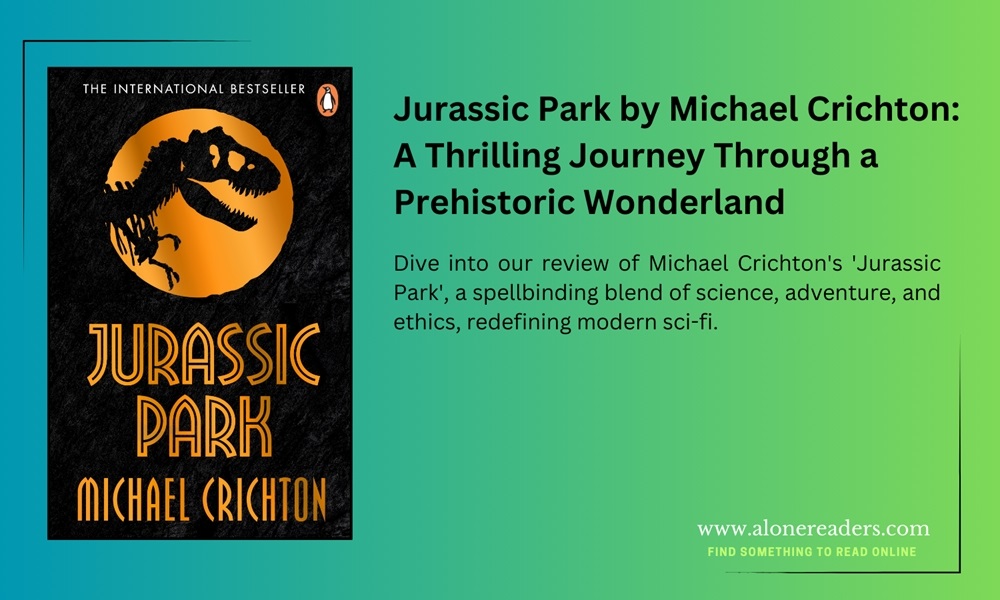
Michael Crichton's "Jurassic Park" is not just a novel; it's an expedition into a world where fantasy collides with reality, and the boundaries of human ingenuity are both celebrated and sternly cautioned against. This book, first published in 1990, remarkably predicted a future where genetic engineering becomes a playground for the rich, raising both marvels and monsters.
"Jurassic Park" begins with an enigmatic prologue, hinting at the wonders and horrors to come. It sets the stage for a narrative that masterfully blends science fiction with elements of thriller and adventure. Crichton's storytelling prowess is evident as he crafts a plot that is as intellectually stimulating as it is pulse-pounding.
The story revolves around a remote island where a wealthy entrepreneur, John Hammond, has created the ultimate theme park, featuring genetically resurrected dinosaurs. Through a feat of scientific genius, dinosaurs walk the earth again, but as we soon learn, toying with nature comes with dire consequences. The book delves into the ethical dilemmas of scientific advancements, a theme more relevant today than ever.
Crichton's characters are robust and multidimensional, from the visionary but naive Hammond to Dr. Alan Grant, a paleontologist who represents the voice of reason amidst the chaos. The character development is a strong suit of the book, providing depth and perspective to the unfolding events. Ian Malcolm, a mathematician and chaos theorist, is perhaps the most memorable, delivering philosophical insights that resonate long after the book is closed.
The attention to scientific detail in "Jurassic Park" is remarkable. Crichton's extensive research on genetic engineering and paleontology is evident, making the narrative believable and educational. His depiction of the dinosaurs is not just based on the science of the late 20th century but also infused with a sense of wonder, capturing the awe these majestic creatures inspire.
The pacing of the book is another of its strengths. Crichton skillfully ramps up the tension, leading to a series of heart-stopping encounters with the park's prehistoric inhabitants. The action sequences are vividly described, placing the reader right in the midst of the terrifying chases and close calls. These scenes are balanced with quieter moments, allowing for reflection on the broader implications of the story.
What sets "Jurassic Park" apart from other science fiction novels is its prescient commentary on the commercialization of science and the ethical quandaries of technological progress. The book is a cautionary tale about the perils of playing God and the unpredictable nature of life itself. Crichton doesn't just entertain; he provokes thought, asking challenging questions about responsibility and control in the face of scientific advancements.
However, the book is not without its flaws. Some may find the technical explanations and scientific jargon overwhelming at times. Additionally, certain characters feel underdeveloped compared to others, serving more as plot devices than as fully fleshed-out individuals.
In conclusion, "Jurassic Park" is a seminal work in the science fiction genre, blending thrilling adventure with thought-provoking themes. It's a book that not only entertains but also invites readers to ponder the moral complexities of our relationship with nature and technology. Michael Crichton's masterpiece remains a relevant and compelling read, offering a window into a world where the impossible becomes possible, with both wondrous and terrifying results.